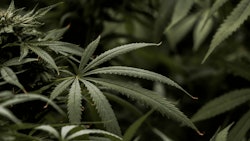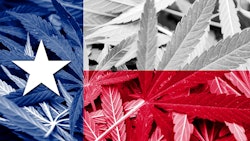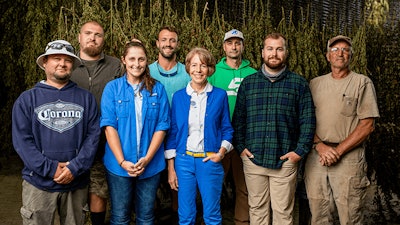
Following a decades-long prohibition on U.S. hemp production, farmers’ embrace of the crop and its myriad uses marks a return to an American tradition that extends back centuries.
In 1619, the House of Burgesses that governed the Colony of Virginia required its farmers to plant hemp.
Now, River Organics grows hemp on a 5-acre sandy loam in Virginia’s Chesapeake Bay Watershed, where Operations Manager Ryan Cross is video-recording amid a virtual tour on this particular Monday in May.
Newly planted young hemp plants resting on plasticulture in the bright, sunny field come through Hemp Grower editors’ computer screens.
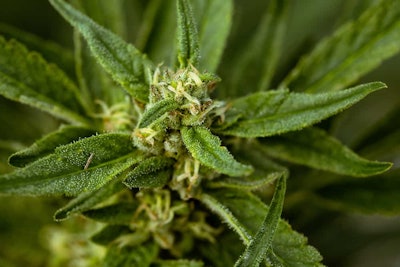
“Those come from the greenhouse, and they've been planted, so they don't look like much just yet,” says River Organics Owner Adrianne Joseph, who’s also joining in remotely. “But imagine that's going to get to the size of about a Christmas tree by September.”
Thus continues the education surrounding the multipurpose hemp plant. In River Organics’ case, the company grows the crop, processes cannabidiol (CBD) and cannabigerol (CBG) and bottles the finished product following U.S. Department of Agriculture (USDA) organic standards.
Organic Overview
The Gloucester, Va., farm where River Organics is located has been in Joseph’s family for more than 30 years. She says she knew from the jump that River Organics would focus on organic production.
“I believe in wellness, so I do yoga every day, go swimming every day, go for a bike ride most every day,” says Joseph, who has worked as an attorney in mergers and acquisitions in France and the U.S. “And I feel that what you put in your body is extremely important. You really are what you eat, or ingest.”
When the Agriculture Improvement Act of 2018 (2018 Farm Bill) passed, federally legalizing industrial hemp production in the U.S., there wasn't any organic CBD on the market.
There was a learning curve to becoming certified in all three segments of the business. “It's really quite a mountain to climb, and you can only really understand the magnitude of the requirements as you get into it,” Joseph says.
The Gloucester company aims to make its product stand out by holding USDA organic certification at three levels: farming, processing and bottling. Its hemp crop has been certified organic for three years, its hemp extract certified for two years and its finished product certified for one year, Cross says.
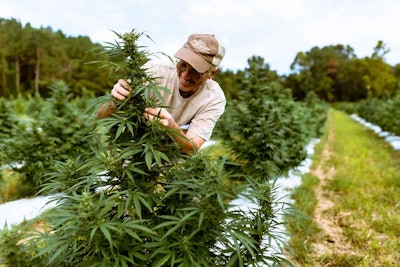
River Organics had already been growing organic soybeans and corn for three years before transitioning its fields to hemp production, so it had experience with the organic farming aspect of its operation, as well as possession of a field that was free of what the USDA deems prohibited substances.
Cross, who holds a bachelor’s degree in biological sciences and grew up farming with his family in Vermont, says that he liked the USDA organic certifier he and River Organics first started working with, Natural Food Certifiers, and decided to stick with them.
He adds that it’s beneficial that Natural Food Certifiers keeps open lines of communication with River Organics. “A lot of certifying agents have a ton of very large clients, and being a smaller client, you may not get the attention that you feel you rightfully deserve,” he says. “So, really, it just came down to efficient communication and a good working relationship was kind of the driving force."
On the processing and bottling side, Cross says companies need to send their standard operating procedures and materials to USDA organic certifiers, and if everything is up to snuff, those certifiers will issue certification in a matter of months. “Some certifying agents allow for an expedited process at an extra charge. Others don't,” he says. “So, it's a three-to-12-month period, just depending.” Then, he says the certifier can request subsequent testing at any time.
Growing and Drying
Because hemp is a bio-accumulator, it cleans the surrounding soil but also takes up the contaminants in that soil, Joseph says, pointing to researchers’ findings that hemp plants accumulated heavy metals near Chernobyl after the nuclear disaster there.
“That's why it's really important for people to buy organic because unless they are buying organic, they don't know what they're putting in their body,” Joseph says. “And while they might think CBD is great and it's doing wonders for them, they don't know what else is in there that might not be doing such good.”
River Organics has a 5-acre field and a 1,200-square-foot greenhouse for seedlings. Its growing operation is certified “100 percent organic” by the USDA, which Joseph says the company has achieved in part by choosing specific potting soil and planting seed in that soil at a specific time.
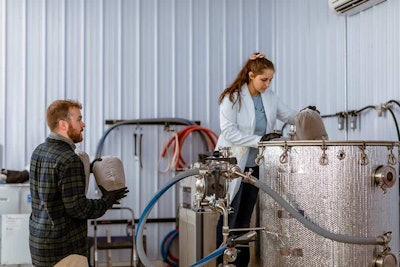
Because the USDA organic certification requires that farmers apply no prohibited substances to their land for three years before harvesting an organic crop, Cross says River Organics’ experience growing organic corn and soybeans has served it well.
The company didn’t need to make large structural changes to the farm to transition from corn and soybeans, Cross says, adding “We didn't have to change anything about how we plant or the field preparation aspect of it.”
“Ryan is the guard of our certificate,” Joseph says of Cross, adding that if someone else on the team suggests using a specific input and it doesn’t meet the requirements, Cross says, “‘Nope, nope, nope. We can’t use that.’”
The team at River Organics lays down plastic around the plants in the field, which Cross says ties in with organic certification. “It helps suppress the weeds since we can't use any herbicides, and it also keeps the root zone a little bit cooler,” he says. “The white plastic actually reflects the sun, and it’s black-colored underneath, which helps eliminate any sort of light penetration. And it helps keep some water in that direct root zone so we don't have to water as much that way.”
River Organics’ drying operation is also part of that first “100 percent organic” segment of the production process. The team hang dries the flower by hand to preserve its cannabinoids and terpenes.
The drying facility is about 82,000 cubic feet, fully insulated and sealed with dehumidifiers and fans. “If we start to get pushed into the later season, we do have some heating elements in there that can add some heat,” Cross says. “But we don't like to add much heat if we don't have to.”
Processing and Bottling
Separated into two rooms, River Organics’ processing building is about 1,600 square feet. In the larger, roughly 1,200-square-foot room, team members extract the CBD oil. In the smaller, approximately 400-square-foot room, they create product formulations and bottle and package the finished product.
The processors use a centrifuge to conduct superchilled ethanol extraction. They then pump the extract into a storage tank. “From there, it gets pumped into the solvent recovery as we need it, so the more solvent we recover, we just add it continuously,” Cross says.
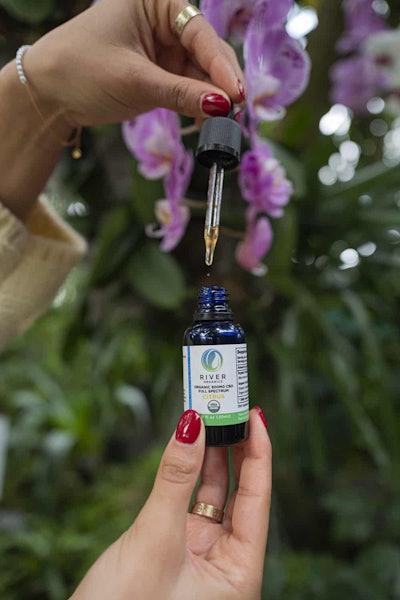
Once the product is about 90% ethanol and 10% full-spectrum hemp extract, they transfer it to a rotary evaporator, where most of the decarboxylation occurs. “If we need to, we have a freezer that we can chill it down to [about] negative 10 Fahrenheit,” he says. “And we can do some secondary winterization if some of those fats and lipids did get through the ethanol extraction."
When River Organics began looking into organic certification for hemp extraction solvents in summer 2019, Cross says ethanol was the best approach. “At the time, that was kind of the best route to organic certification, in talking with the certifier contacts that I had,” Cross says. Safety, scalability, efficiency, facility requirements and the U.S. Food and Drug Administration’s classification of ethanol as “Generally Regarded as Safe” all played into the decision.
However, the company needed to use food-grade organic-certified sugarcane ethanol to be certified organic, which is more expensive than non-food-grade ethanol because the purchaser needs to pay an alcohol tax.
Another requirement for organic certification is that the processor show proof that her or she is successfully preventing contamination of sanitizing agents and other compounds used for cleaning, Cross says.
While the processing, like the growing, is “100 percent organic,” the bottling operation falls under the more general “organic” designation, meaning the end product has between 95% and 100% organic ingredients. This is because specific ingredients, such as bacon flavoring that the company will use for pet treats, is organic instead of 100% organic.
In addition to bacon flavoring, the bottling room houses other organic-certified oils, flavors and additives, such as tea tree oil and peppermint oil. It’s also where the company keeps its blue bottles and heat sealer for tamper seals and protective film.
River Organics currently operates in ecommerce. “We want to do retail sales, and we're looking actively for partners,” Joseph says. “We have a few retail [outlet customers] fairly locally, and we're looking to expand that. We're going to the CBD Expo in Atlanta in June, and we'll be looking for partners there.”
As the company continues to grow—and dry, process, bottle and sell—Joseph says it will remain committed to organics and paying attention to the details.
“We’re not one of these companies that has hundreds of acres, and we don't aspire to be one of those companies,” Joseph says. “We want to grow the best possible plants for the best possible products.”










